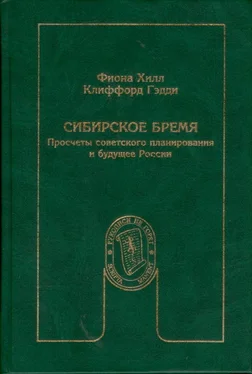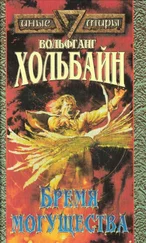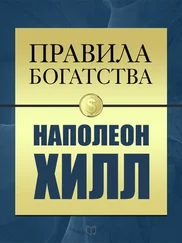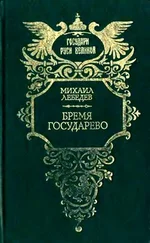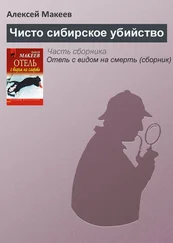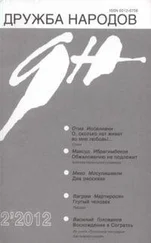Custine, Adolphe, marquis de. Empire of the Czar: A Journey through Eternal Russia. Doubleday, Anchor Books, 1989.
Dallin, David, and Boris Nikolaevsky. Forced Labor in Soviet Russia. Yale University Press, 1947.
D’Arge, Ralph. «Economic Impact of Climate Change: Introduction and Overview». In Proceedings of the Third Conference on the Climatic impact Assessment Program, edited by Anthony Broderick and Thomas M. Hard. Department of Transportation Conference Proceedings, DOT-TSC-OST-74-15 (1974).
Da Vanzo, Julie, and Clifford Grammich. Dire Demographics: Population Trends in the Russian Federation. RAND, 2001.
Davis, Donald R., and David. E. Weinstein. «Bones, Bombs and Break Points: The Geography of Economic Activity». Working Paper 8517. Cambridge, Mass.: National Bureau of Economic Research, October 2001.
De Madariaga, Isabel. Russia in the Age of Catherine the Great. Yale University Press, 1981.
Demko, George, and Roland Fuchs. Geographic Studies on the Soviet Union: Essays in Honor of Chauncy D. Harris. University of Chicago Press, 1984.
De Nevers, Renee. Russia’s Strategic Renovation. Adelphi Paper 289. London: IISS/ Brassey’s, July 1994.
Derluguian, Georgi M., and Scott Greer. Questioning Geopolitics: Political Projects in a Changing World System. Westport, Conn.: Greenwood Press, 2000.
De Villepin, Xavier. «Face aux Incertitudes Russes». Commentaire 18, no. 71 (Autumn, 1995): 511-14.
Diamond, Jared. Guns, Germs and Steel: The Fates of Human Societies. W.W. Norton, 1999.
Dienes, Leslie. «Economic and strategic position of the Soviet Far East». Soviet Economy 1, no. 2 (April 1985): 146-76.
—//—. «Reflections on a Geographic Dichotomy: Archipelago Russia». Eurasian Geography and Economics 43, no. 6 (September 2002): 443—58.
—//—.«Regional Planning and the Development of Soviet Asia». Soviet Geography 28, no. 5 (May 1987): 189-213.
—//—. Soviet Asia: Economic Development and National Policy Choices. Boulder, Colo.: Westview Press, 1987.
Diment, Galya, and Yuri Slezkine. Between Heaven and Hell: The Myth of Siberia in Russian Culture. New York: St. Martin’s Press, 1993.
Dobson, Richard. Is Russia Turning the Corner? Changing Russian Public Opinion 1991— 1996. Washington: United States Information Agency, September 1996.
Domenach, Jean-Marie. «Leninist Propaganda». Public Opinion Quarterly 15, no. 2
(Summer 1951): 265-73. Doyle, Michael W. Empires. Cornell University Press, 1986. Drage, Geoffrey. Russian Affairs. London: John Murray, 1904. Duff, J. D., ed. Russian Realities and Problems. Cambridge University Press, 1917.
Dukes, Paul, ed. Russia and Europe. London: Collins & Brown, 1991.
—//—. trans. Russia under Catherine the Great: Select Documents on Government and Society, vol. 1. Newtonville, Mass.: Oriental Research Partners, 1978.
Duncan, Peter J. S. Russian Messianism: Third Rome, Holy Revolution, Communism and After. New York: Routledge, 2000.
Dunlop, John. «Alexander Lebed and Russian Foreign Policy». SAIS Review, Winter-Spring 1997:47-72.
. The New Russian Nationalism. The Washington Papers. Praeger, 1985.
. The Rise of Russia and the Fall of the Soviet Empire. Princeton University Press, 1993.
Energy Policies in the Russian Federation: 1995 Survey. Paris: OECD/IEA, 1995.
Engels, Friedrich. Herr Eugen Duhring’s Revolution in Science (Anti-Duhring). Translation. New York: International Publishers, 1939.
EPIcenter. Social Policies in Russia, no. 1 (25), January—February 1997; and no. 2 (26), March-May 1997.
Eranti, Esa, and George Lee. Cold Region Structural Engineering. McGraw-Hill, 1986.
Falkus, M. E., The Industrialization of Russia, 1700—1914. Studies in Economic and Social History. London: Macmillan, 1972.
Federov, Yuri. «L’institution militaire, le pouvoir et la societe civile en Russie». Politique Etrangere (Paris) (December 1996): 777-89.
Ferguson, Niall. Virtual History: Alternatives and Counterfactuals. Basic Books, 1999.
Ferris, Wayne. The Power Capabilities of Nation-States: International Conflict and War. Lexington, Mass.: Lexington Books, 1973.
Feshbach, Murray. Russia’s Health and Demographic Crises: Policy Implications and Consequences. Washington: Chemical and Biological Arms Control Institute, 2003.
Fieldhouse, D. K. Economics and Empire 1830— 1914. Cornell University Press, 1973.
Figes, Orlando. A People’s Tragedy: The Russian Revolution, 1891–1924. Penguin Books, 1996.
Florida, Richard. «Bohemia and Economic Geography». Journal of Economic Geography!, no. 1 (January 2002): 55–71.
—//—. The Rise of the Creative Class. Basic Books, 2002.
French, Hugh M., and Olav Slaymaker, eds. Canada’s Cold Environments. McGill-Queen’s University Press, 1993.
French, R. Antony. Plans, Pragmatism and People: The Legacy of Soviet Planning for Today’s Cities. Pitt Series in Russian and East European Studies, no. 26. University of Pittsburgh Press, 1995.
Fuller, William C, Jr. Civil-Military Conflict in Imperial Russia, 1881–1914. Princeton University Press, 1985.
—//—. Strategy and Power in Russia: 1600- 1914. Free Press, 1992.
Gabaix, Xavier. «Zipf ’s Law for Cities: An Explanation». Quarterly Journal of Economics 114 (August 1999): 739-67.
Gaddy, Clifford G. The Price of the Past: Russia’s Struggle with the Legacy of a Militarized Economy. Brookings, 1996.
Gaddy, Clifford G., and Barry W. Ickes. «The Cost of the Cold». Unpublished working paper, Pennsylvania State University (May 2001).
—//—. Russia’s Virtual Economy. Brookings, 2002.
Gang, Ira, and Robert Stuart. «Mobility Where Mobility Is Illegal: Internal Migration and City Growth in the Soviet Union». Journal of Population Economics 12 (1999): 117—34.
Ganz, Hugo. The Land of Riddles: Russia Today. New York and London: Harper & Brothers, 1904.
Gaquin, Deidre A., and Katherine A. DeBrandt. County and City Extra: Special Decennial Edition. Lanham, Md.: Bernan, 2002.
Gare, Frederic, ed. La Russie dans Tous Ses Etats. Brussels and Paris: Collection Axes Savoir, 1996.
Garnett, Sherman. «The Impact of the New Borderlands on the Russian Military».
Occasional Paper 9 (August 1995). Cambridge, Mass.: American Academy of Arts and Sciences, 1995.
—//—. «Russian Power in the New Eurasia». Comparative Strategy 15 (1996): 31–40.
—//—. «Russia’s Illusory Ambitions». Foreign Affairs 76, no. 2 (March/April, 1997): 61-77.
Gellner, Ernest. Nations and Nationalism. Cornell University Press, 1983. Gelman, Harold. «The Soviet Far East Military Build-Up and Soviet Risk-Taking against China». R-2943AF. Santa Monica, Calif.: RAND, 1982.
Gerschaft, Mikhail. «The Economic Grounds for Russian Nationalism». Prism 1, no. 22, part 4 (20 October 1995).
—//—. «The Sour Grapes Syndrome». Prism 2, no. 11, part 2 (31 May 1996).
Geyer, Dietrich. Russian Imperialism: The Interaction of Domestic and Foreign Policy 1860- 1914. Yale University Press, 1987.
Gilbert,Martin. Russian History Atlas. Macmillan, 1972.
Glaeser, Edward L. «Demand for Density? The Functions of the City in the 21st Century». Brookings Review 18 (Summer 2000): 10-13.
Glaeser, Edward L, Jed Kolko, and Albert Saiz. «Consumer City». Working Paper 7790. Cambridge, Mass.: National Bureau of Economic Research, 2000.
Читать дальше
